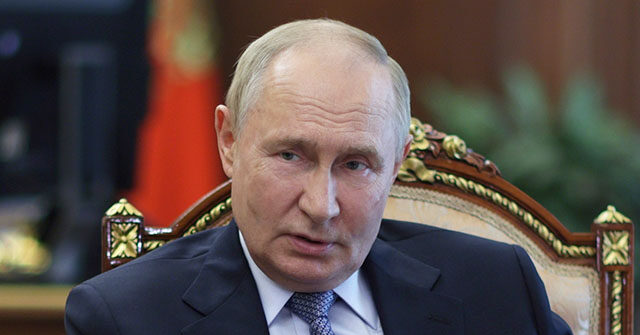Russian President Vladimir Putin on Thursday signed a law that criminalizes searches for “extremist” content on the internet, with fines of up to 5,000 rubles ($64) for each violation.
The Moscow Times noted that even some of Russia’s more enthusiastic censors are uneasy about the new law because they might get busted for seeking out extreme content so they can censor it:
Yekaterina Mizulina, head of the Kremlin-aligned Safe Internet League and a prominent advocate of online censorship, voiced unease over the bill earlier this month. She warned that it could obstruct the League’s work, roughly 30% of which involves identifying extremist content and forwarding it to authorities.
Mizulina claimed that the legislation could even put police officers at legal risk for viewing content as part of their duties.
In a similar vein, the head of Russian state propaganda network RT, Margarita Simonyan, lamented that her apparatchiks would be hindered in their quest to “investigate and bring to shame” critics of the Kremlin and the Ukraine war if they were “forbidden to even read them.”
The vote in the Russian parliament to pass the bill was more divided than usual, with opposition from factions that usually give Putin what he wants, including the Communist Party. An aide to a liberal Russian politician who protested the bill by comparing it to the Big Brother dystopia of George Orwell’s 1984 was immediately arrested.
Internet freedom advocates, meanwhile, raised the objection that “extremism” can be difficult to define and Putin is likely to stretch the term to include all criticism of his government.
Human Rights Watch pointed out that Putin has previously designated anti-corruption groups, LGBT organizations, independent media outlets, human rights groups, and political opponents as “extremists.” It is a safe bet that Russian courts will find most criticism of the Ukraine war to be “extremist” in character.
The new law empowers Putin’s enforcers to go after people who search for “extreme” content, not just those who create it. The chilling effect on dissent will be formidable in a nation where dissent was already half-frozen to death.
Putin’s digital minister, Maksut Shadayev, was predictably evasive when asked how the regime would define “extremist” content, or tell the difference between users who intentionally seek it out compared to those who stumble across it by accident. Shadayev said it would be up to prosecutors to demonstrate “intent.”
The Committee to Protect Journalists (CPJ) said Putin’s new law was the “most serious step in censorship and the fight against dissent” since the 2022 bill that established 15-year prison sentences for disseminating “fake news” about Russia’s military activities.
“This vaguely worded, fast-tracked bill shows a clear disregard for open debate and create an even more repressive environment for the media and the public,” said CPJ Europe and Central Asia Senior Researcher Anna Brakha.
A Russian digital rights group told CPJ it expected “tens of millions of users” would unsubscribe from social media channels and avoid websites that might expose them to any content that could be classified as actionable “extremism.”
Russia’s new law will place a heavy burden on internet and social media providers to monitor user activity and report searches for “extremist” content to the authorities. Police can be expected to rifle through users’ browser histories to find punishable access to forbidden websites.
On the same day he signed the bill criminalizing “extremist” content, Putin signed another bill that bans advertising for virtual private network (VPN) services.
VPNs are a common tool for people in repressive countries to evade state censors. They have become extremely popular in Russia, and while Putin has not tried to outlaw them yet, he seems determined to bankrupt them.
Bloomberg News noted that under the new laws, VPN providers who “enable access” to “extremist” content or fail to cooperate fully with investigators could face stiff penalties of over 500,000 rubles (over $6,200.)
Read the full article here
